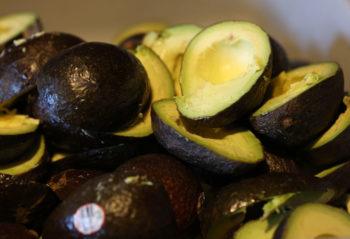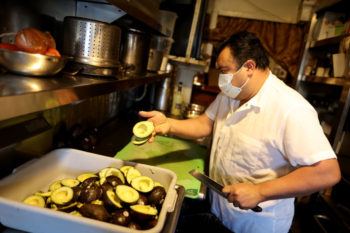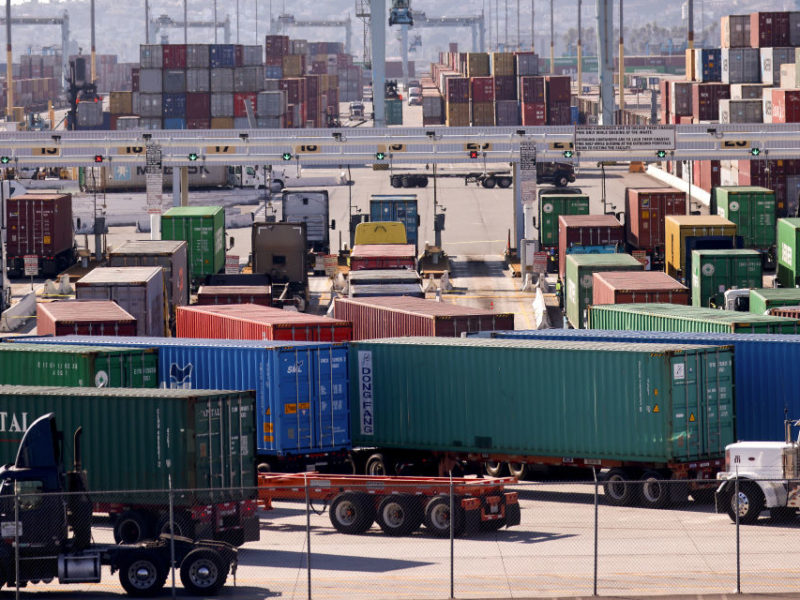The Avocado Ban Underscores The Need For A Strong Bilateral Supply Chain, Experts Say

The recent ban on Mexican avocado importation into the U.S. highlights the importance of a strong bilateral supply chain that promotes economic growth and prosperity for both countries, said Texas A&M AgriLife experts.
Inspections of Mexican avocados were halted recently after a U.S. inspector was threatened in the Mexican state of Michoacan. And while the issue of providing additional security for U.S. inspectors was resolved in a week and inspections began again, the incident showed the ripple effect of potential disruptions in the U.S.-Mexico supply chain.
Avocado Demand, Imports
A 2020 study* by the Agribusiness, Food and Consumer Economics Research Center (AFCERC) in the Department of Agricultural Economics of the College of Agriculture and Life Sciences at Texas A&M University demonstrates how avocado imports benefit both the Texas and U.S. economy.
“Domestic production, which is primarily in California and Florida, can only meet about one-tenth of the U.S. demand for avocados,” said Gary Williams, professor of agricultural economics and co-director of AFCERC.
To meet the ever-increasing demand, the U.S. imports avocados from other countries, especially Mexico, which provides about 90% of the U.S. supply. It also imports avocados from Peru, the Dominican Republic, Chile and Colombia.
Despite the fact that Texas produces no avocados, the avocado trade is important to the state, Williams said.
“That is because a major share of the rapidly growing U.S. imports of avocados pass through Texas land ports and are warehoused, wholesaled and distributed by Texas food companies,” he said.
Avocado Imports Help Texas, U.S. Economy
Oral Capps, AFCERC co-director and endowed chair in the Department of Agricultural Economics, noted that over the past two decades there has been a 240% surge in U.S. per capita consumption of fresh avocados.
The AFCERC study shows a large percentage of the rapidly growing volume of avocado imports into the U.S. come through Texas ports, making a positive impact on the Texas economy. Most of the economic benefit from the imports is accrued by wholesale, retail and service industries at the state and national level.
Williams also noted the Mexican Hass Avocado Import Association, MHAIA, is based in the Dallas area, and many Texas agribusinesses are involved in importing and selling avocados in Texas and throughout the U.S. MHAIA partners with Mexican avocado producers and packers to market and promote U.S. consumption of Mexican avocados.
Avocado imports from Mexico have made a substantial contribution to the U.S. economy as they move along the import supply chain. These imports generate multiplier effects along intersecting supply chains and adding to U.S. output, value-added income, jobs and taxes. In Texas alone, avocado imports in 2019-2020 generated over $510 million in economic activity and nearly 2,500 jobs.

What Happened During The Ban?
Luis Ribera, Texas A&M AgriLife Extension Service economist and director of Texas A&M’s Center for North American Studies, said Mexican avocados that had already been inspected were allowed to be shipped to the U.S.
“Soon there were clear indications of tightening supplies and of importers looking for alternative suppliers in the event the ban became protracted,” Ribera said. “The situation also demonstrated how an unexpected disruption in the U.S.-Mexico supply chain could impact other agricultural imports from Mexico.”
As a result of a longer ban, Williams said, avocado prices, which have risen steadily over the past two decades, would have likely spiked and remained higher until the ban was lifted or alternative suppliers were found.
“If the suspension had been continued, we would probably have seen a sharp price increase as Mexican imports dwindled and wholesalers and retailers sought out other avocado-producing countries to help fill the supply gap,” he said. “However, both the U.S. and Mexico had a strong economic interest in resuming avocado trade, so they acted with all deliberate speed to provide the needed security for U.S. inspectors in Michoacan.”
More Information On Mexican Avocados
The 2020 AFCERC analysis of U.S. avocado imports for the MHAIA also showed how Mexican Haas avocado imports benefit the entire U.S. economy. The Haas variety, which accounts for 85-90% of all avocados imported by the U.S., provided these benefits:
- $6.5 billion in U.S. economic output
- $4 billion in added value to the U.S. gross domestic product, GDP
- $2.2 billion in U.S. labor income
- $1.1 billion in taxes
- 33,051 jobs for U.S. workers
In Mexico, avocado production is responsible for the creation of more than 78,000 direct and permanent jobs as well as more than 310,000 indirect and seasonal jobs.
“Avocados provide a productive living for many people in an area of Mexico that was once one of the largest sources of migrant workers in the U.S.,” Williams said. “There are about 29,000 avocado growers and 65 packers in Mexico, with the vast majority cultivating less than 5 acres of land. So that means it’s primarily small family farms and not large agricultural operations that benefit from Mexican avocado production and exports.”
* This link is no longer active and has been removed.
This article by Paul Schattenberg originally appeared on AgriLife Today.





